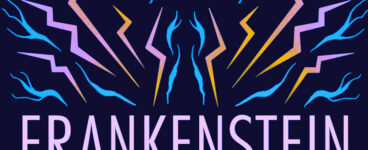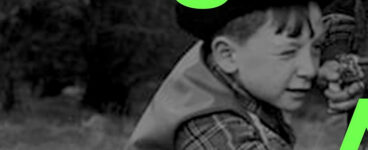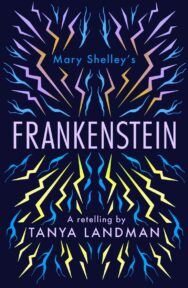‘But in these days of mass communication we are more aware than ever of how fragile our world is.’
Tanya Landman continues her retellings of classic literature for Barrington Stoke with Frankenstein. We spoke to her to find out more about her latest book.
Frankenstein: A Retelling
By Tanya Landman
Published by Barrington Stoke
This is the latest in a series of retellings for 13+ readers you have written and published with Barrington Stoke, which includes Jane Eyre and Wuthering Heights. What is it about approaching such well-known and respected texts in this way that you enjoy, and how did your experience of retelling Frankenstein differ from those that had come before?
With retellings I get all the pleasure of crafting words and sentences into satisfying, tasty prose without having to suffer the anguished self-doubt involved in creating convincing plots and characters of my own.
I’d read and loved both Jane Eyre and Wuthering Heights as a teenager and used to spend hours imagining myself into Jane and Kathy’s heads. It was a real joy to be able to put myself back in time and be inside their minds again. Retelling both books was a labour of love.
Frankenstein was different. I confess I hadn’t actually read the book before I accepted the commission from Barrington Stoke and when I did pick up a copy I found it a struggle to wade through! I thought a lot of the prose was difficult and dated and yet I was fascinated by the character of Victor Frankenstein and his truly monstrous ego.
I discovered a really good audio book and listened to it several times (often with my eyes shut) to imagine the scenes unfolding and catch the feel and the sense of the story. And then I noted down all the scenes and ideas that had made my heart race or my skin prickle or made me want to cry and those were the ones I concentrated on. Passages and characters I found dull and uninteresting mostly got the chop. It was a different challenge to retelling Jane Eyre and Wuthering Heights but I absolutely loved crafting Mary Shelley’s electrifying masterpiece into what I hope is a version that will grip a modern reader.
Frankenstein is considered by many to be the first science fiction novel, and indeed one of the first major horror novels as well. Many sections are still chilling to read today. What about the story did you think would resonate with a younger audience, and how did you bring those elements to the surface for this edition?
Yes – it’s a pioneering work in both genres and an extraordinary achievement, especially for such a young woman. I am in awe of Mary Shelley.
But for me what resonates (and I think will resonate with younger readers) are the very human horrors and human failings that lie at the heart of the story. When I was in my teens I felt so confused about who I was and where my place was in the world. I wanted to fade into the background and pass unnoticed. But I also wanted to do something notable with my life – like save the planet.
I completely understand Frankenstein’s burning ambition to achieve the extraordinary – to make his life matter, to be famous for something – anything! I think the idea of that one fatal flaw – and all the horrors that result from it – is as relevant now as it ever was.
Frankenstein is a story many young people these days will feel they know, but do you think some elements may be surprising when they read it for the first time?
I think its contemporary relevance will be surprising to some. Most people have images in their head of the Hammer House of Horror monster with the bolt through his neck. They imagine it will be a schlock! horror! screeching violins and nails-on-blackboards kind of a read. Instead (I hope) they will find it’s a fascinating tale about the nature of Man and his position in the natural world – and what makes a monster.
Frankenstein is in many ways a cautionary tale about the obsession with dominating life and the fatal pursuit of progress. Do you think these themes have particular relevance today?
Oh yes – absolutely. Man’s desire to subdue and conquer Nature has led us to the edge of an abyss.
Throughout human history there have always been made dictators and despots. But in these days of mass communication we are more aware than ever of how fragile our world is. And the future becomes more perilous ever day because of a few very rich, very powerful people with colossal egos and bottomless pits of ambition.
Are there any other classic novels you’d be particularly interested in retelling?
Yes – plenty. Bring it on!
Frankenstein: A Retelling by Tanya Landman is published by Barrington Stoke, priced £7.99.
ALSO IN THIS ISSUE

 Frankenstein – A Retelling: A Q & A with Tanya Landman
Frankenstein – A Retelling: A Q & A with Tanya Landman
‘But in these days of mass communication we are more aware than ever of how fragile our world is.’

 Toy Fights: A Boyhood
Toy Fights: A Boyhood
‘I’d have one question to ask Paterson: will there be a second volume and, if so, how soon can I rea …













